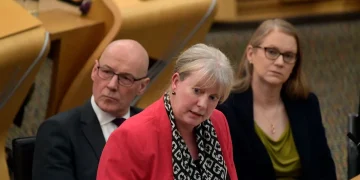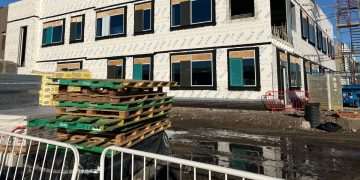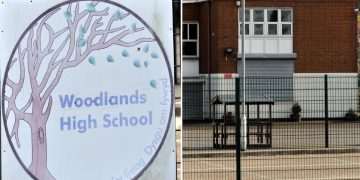Oakleigh House School in Swansea proposed to shut its doors after more than a century
A second private school in Wales has announced plans to shut. The news from Oakleigh House Primary in Swansea comes after St Clare’s School in Porthcawl said it proposes to close at the end of December. Both schools are run by education company Cognita UK which blamed financial pressures.
The news, which parents said came as a shock, follows warnings about the future of fee-paying schools after VAT was imposed on top of increased employer National Insurance contributions.
Cognita said in a statement: “This week we shared some difficult news with our families and staff about the proposal to close Oakleigh House School.
“We carried out a comprehensive review of the school’s sustainability in light of local demographic trends and a changing economic environment, which sadly concluded that pupil numbers are expected to continue to fall to an unsustainable level in the next academic year. We will do everything we can to support our families and staff and help our current pupils find alternative school places should the decision be taken to close.”
It is understood the date for the proposed closure of Oakleigh House is also December this year.
The school, in the Uplands area of Swansea, has operated for more than 100 years. It is the only independent prep school in the city and takes children from two and a half to 11 years. Fees range from £3,736 a term for reception to £4,492 a term for children in year six.
The school says on its website it commits to “opportunities for every child to reach their full academic and personal potential”.
More than half of pupils achieved above average in English and maths in assessments, conducted in British Curriculum Schools worldwide, last year.
Cognita confirmed that Oakleigh and St Clare’s are the only schools it runs in Wales. While it proposed to shut St Clare’s in December this year it did not confirm a date for Oakleigh’s closure.
As the proposed closures were announced another private school in Swansea said that it stood ready to help parents looking for alternatives.
Ffynone House School, which takes children from age 11 up, said it was even considering re-opening primary provision. The school, which was previously run by Cognita, was taken over by trustees around 10 years ago.
Pini Patel, a parent and trustee, speaking as spokesperson for Fynnone House School, said: “We are shocked and saddened by this news [about Oakleigh House and St Clare’s]. This is undoubtedly a difficult time for the pupils, parents, and staff affected by this announcement and our thoughts are very much with them. We aim to support them in any way that we can if these closures do go ahead.
“We have the expertise and capacity to accommodate more students in years seven to 13 and will do everything we can to ease the transition of any pupils from St Clare’s to Ffynone House. We are also currently putting the necessary plans in place to reinstate our primary school offering.
“At Ffynone House we are fiercely proud of our independence. All of our trustees have personal links to the school ensuring stability and continuity for our Ffynone family. We remain committed to delivering an outstanding education in a nurturing environment – our future is bright. Our doors are always open and parents and students are welcome to visit us at any time – we are here to help.”
The site was originally St Winefride’s Convent School from 1887 to 1966 until it became Ffynone House School in 1975. At this point, up until 2008 when Cognita took over briefly, there was an integrated prep school for years three to six and this could be reinstated along with an expansion adding in reception and years one and two, said Mr Patel.
Blaming government imposition of VAT on school fees and increased National Insurance payments Paul Norton, director of the Welsh Independent Schools Council, said there was a risk that any schools shutting would erode confidence in others. This added pressure to the private school sector across Wales.
Mr Norton, who owns and runs Kings Monkton School in Cardiff, said his school is secure. But in his role at WISC he has warned that as many as 19 of Wales’ 80 or so fee-paying schools are at risk of closure. He blames this on VAT imposed on fees since January, increased employer National Insurance payments, cost pressures, and increased wages.
“The blanket application of VAT fails to consider the unique role of small independent schools in Wales. These institutions are integral to our communities and policies must reflect their distinct contributions,” Mr Norton said.
“Small independent schools of around 250-300 make up the majority of schools within the independent sector and cater for the needs of the local community of children who cannot successfully access mainstream state school for whatever reasons. “




















































